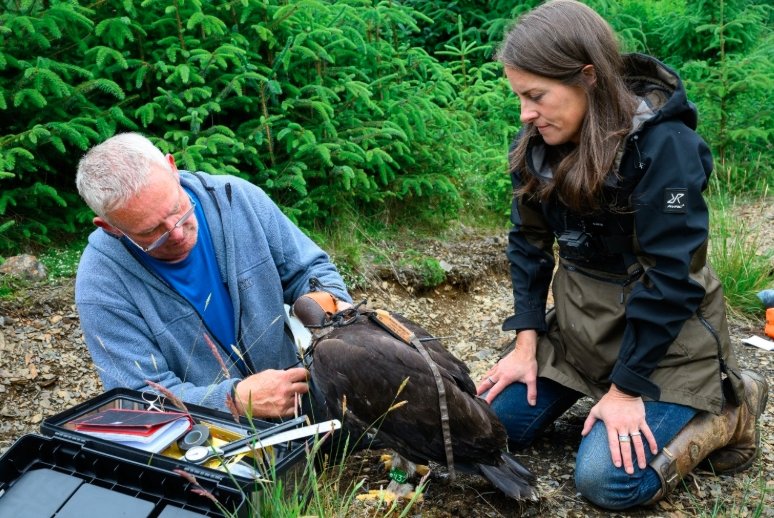Legendary broadcaster Sir David Attenborough has named a young golden eagle chick Princeling in Scotland. This milestone happened as part of a major conservation effort to boost eagle numbers in the region, with the chick fledging its nest near Moffat in Dumfries and Galloway on August 19, 2025.
The Special Naming Moment
Sir David, at 99 years old, chose the name Princeling to mean young prince. He believes it stands for fresh hope in bringing back golden eagles to areas where they once thrived.
This name fits the project’s goals perfectly. Experts kept the chick’s birth quiet until it could fly safely, protecting it from harm.
The young bird got tagged in June by wildlife specialists. They worked with local groups, landowners, and managers to track its progress without disturbing the family.
Princeling’s parents, Emma and Keith, built their nest in a quiet spot. Emma came from a move in 2021, named by a Scottish government official focused on nature protection.

Inside the Conservation Project
The South of Scotland Golden Eagle Project leads this work. It started by moving young eagles from the Highlands to the south, aiming to grow the population there.
Since launching, the project has released several chicks into wild areas. This helps eagles spread out and find new homes.
Now, the effort reaches England and Wales through Restoring Upland Nature. Teams share knowledge and resources to make similar gains across the UK.
Princeling marks the first successful fledging from a translocated eagle. His safe flight shows the methods work well.
Experts monitor these birds with tags. Data from past years reveals how eagles adapt, with many staying in Scotland and breeding.
Why Golden Eagles Matter
Golden eagles play a key role in nature. They control smaller animal numbers and show if ecosystems stay healthy.
In Scotland, their numbers dropped due to habitat loss and other issues. Projects like this aim to reverse that trend.
Recent studies show eagle populations rising slowly. For example, southern Scotland now has more pairs than a decade ago.
This success ties into broader wildlife wins. Other birds, like curlews, get help through releases by figures like the Prince of Wales.
Public interest grows with each story. People follow updates on social media, sharing excitement about these majestic creatures.
Here are some key facts about golden eagles in Scotland:
- Adult wingspan reaches up to 7 feet.
- They can live over 30 years in the wild.
- Nests often sit on high cliffs or tall trees.
- Diet includes rabbits, hares, and sometimes larger prey.
Challenges and Future Steps
Not everything goes smoothly. Eagles face threats from illegal activities and changing weather.
Conservation groups push for stronger laws. They work with communities to build support for protection.
Looking ahead, plans include more releases. Teams hope to see Princeling start his own family in a few years.
Funding comes from various sources, including government and donations. This keeps the work going strong.
Experts predict steady growth if efforts continue. Similar projects in other countries offer lessons for success.
| Year | Milestone | Impact |
|---|---|---|
| 2018 | Project launch | First chicks moved south |
| 2021 | Emma translocated | Boosted local pairs |
| 2025 | Princeling fledges | First breeding success |
| Future | Expansion to UK | Wider population growth |
Broader Impact on Wildlife
This story highlights how people can help nature recover. Sir David’s involvement draws global attention to these birds.
Other recent events, like eagle sightings in new areas, add to the positive news. It connects with worldwide efforts to save endangered species.
Readers who care about animals might join local groups or support online campaigns. Small actions make a big difference.
What do you think about this conservation win? Share your thoughts in the comments and spread the word to friends who love nature.


















